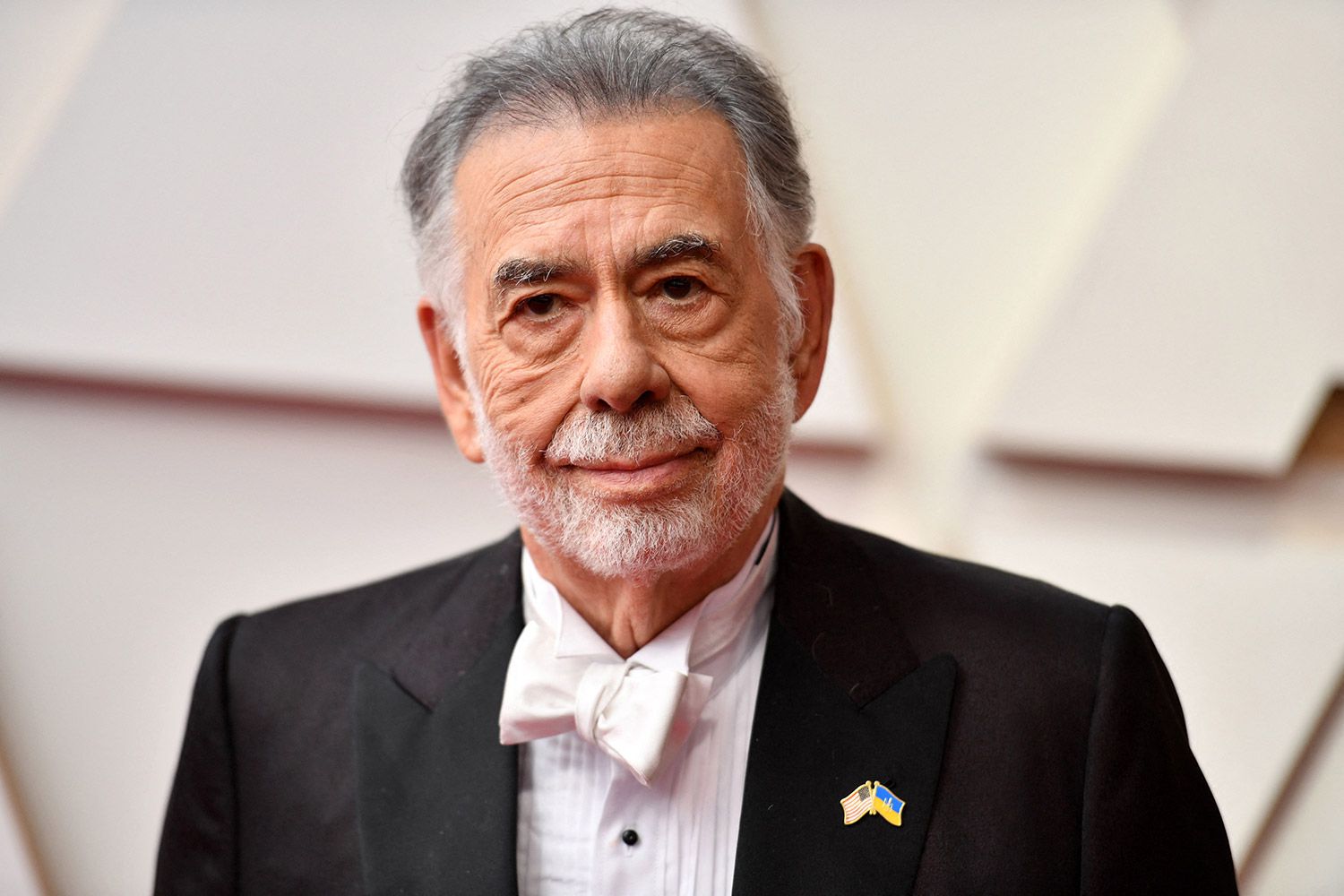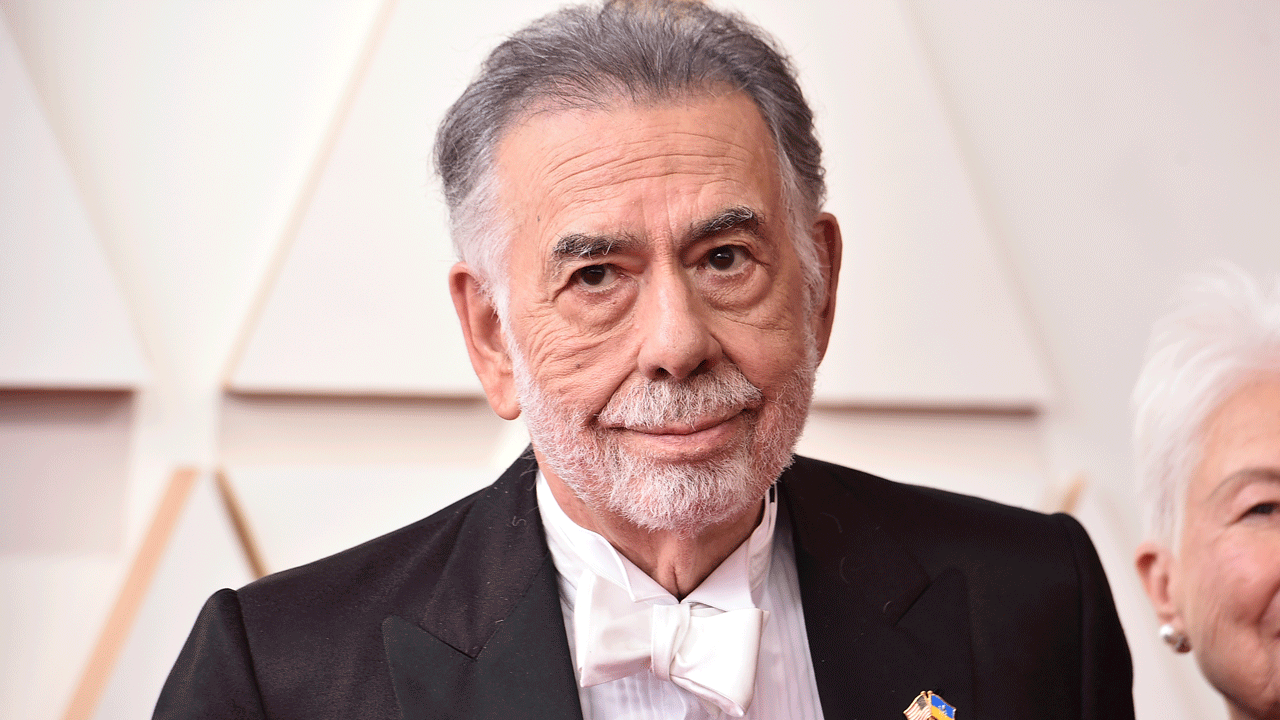Francis Ford Coppola - A Filmmaking Life Explored
When we think about American cinema, there are certain names that simply resonate, names that evoke images of powerful stories and unforgettable scenes, and Francis Ford Coppola is, quite frankly, one of those figures who stands tall. He is, in some respects, a true architect of the cinematic world as we know it, someone whose creative vision has shaped how we experience movies on a fundamental level. You know, his influence runs deep, touching many parts of how films are made and how they connect with people.
This particular individual, a prominent figure, has contributed immensely to what many call the "New Hollywood" period, a time when filmmakers truly pushed boundaries and explored new ways of telling stories on screen. His creative output, actually, spans decades, and his work often sparks conversation and strong feelings, which is a testament to its lasting impact. It's almost as if he has a unique way of seeing things, bringing those visions to life with an intensity that stays with you long after the credits roll.
This discussion will take a closer look at the life and work of Francis Ford Coppola, touching on his personal journey, the distinctive qualities that make his films stand out, and the significant recognition he has received from the film community. We will, in a way, explore the various facets of his career, from his early beginnings to the major accolades that mark his enduring legacy in the world of motion pictures. It's a chance to appreciate the person behind some of cinema's most talked-about creations.
Table of Contents
- Francis Ford Coppola - A Look at His Life
- What Makes Francis Ford Coppola So Influential?
- How Did Personal Events Shape Francis Ford Coppola as a Filmmaker?
- Which Francis Ford Coppola Films Are Considered His Most Impactful?
- What Distinguishes Francis Ford Coppola From Other Directors of His Time?
- Recognizing Francis Ford Coppola for a Lifetime of Achievement
- Tributes to Francis Ford Coppola
- The Enduring Legacy of Francis Ford Coppola
Francis Ford Coppola - A Look at His Life
Born on April 7, 1939, Francis Ford Coppola entered the world at a time that would, in fact, eventually see him become a leading light in the motion picture industry. His beginnings set the stage for a career that would be marked by a distinct creative energy and a willingness to challenge conventional storytelling. You know, from a young age, it seems, there was something about him that suggested a path less ordinary, a life dedicated to artistic expression through the moving image. This particular individual, in essence, grew up to become a celebrated figure in American filmmaking.
He is, basically, someone recognized as a key figure from the "New Hollywood" period, a time when a fresh wave of filmmakers brought a different kind of sensibility to the big screen. This period, in a way, redefined what American movies could be, moving away from older studio systems and embracing more personal, often gritty, stories. Francis Ford Coppola, apparently, was at the forefront of this shift, helping to shape its direction and leaving an indelible mark on its character. His contributions during this time are, quite frankly, central to his story.
Beyond his professional endeavors, Francis Ford Coppola has, of course, also faced deep personal challenges. In 1986, for instance, a profound sorrow touched his family when his son, Gio, passed away in a boating mishap. This kind of event, naturally, leaves an incredibly deep mark on a person, influencing their perspective on life and, perhaps, even their creative output. It’s a reminder that even individuals who achieve great public success also experience very human moments of pain and loss, which is something we often forget.
Francis Ford Coppola has, in short, been described as one of America's more unpredictable, lively, and debated filmmakers. These qualities, you see, often go hand-in-hand with someone who pushes boundaries and creates work that sparks strong opinions. His approach to filmmaking is, arguably, anything but conventional, making his career path a fascinating one to observe. It's clear that he brings a unique kind of vigor to his projects, which, honestly, shines through in the finished product.
Personal Details and Bio Data of Francis Ford Coppola
| Full Name | Francis Ford Coppola |
| Date of Birth | April 7, 1939 |
| Nationality | American |
| Known For | Filmmaking, Directing, Screenwriting, Producing |
| Notable Era | New Hollywood |
What Makes Francis Ford Coppola So Influential?
When you consider the impact of Francis Ford Coppola on motion pictures, you might ask yourself, what exactly gives him such a lasting hold on the imagination of movie lovers and creators alike? Well, it's pretty clear that his way of telling stories, his unique visual flair, and his ability to draw out powerful performances from actors have all played a big part. He has, in some respects, shown generations of filmmakers how to approach complex narratives with a bold, uncompromising vision. This approach, you know, has resonated widely.
He's a person who, frankly, doesn't shy away from grand themes or difficult subjects. His movies often explore the human condition in ways that are both deeply personal and universally relatable. It’s almost as if he invites you to step into another world, allowing you to experience the emotional weight of his characters' lives. This kind of storytelling, honestly, leaves a deep impression on people, making his work a frequent topic of discussion and study. That, in itself, is a sign of significant influence.
Moreover, Francis Ford Coppola has, quite literally, helped to define what many consider to be classic American cinema. His films are often seen as benchmarks, setting a high standard for artistic achievement and commercial success. The way he builds a scene, the rhythm of his storytelling, and the sheer scope of his ambition have, in fact, inspired countless individuals who aspire to make movies. His impact, really, goes beyond just the stories he tells; it extends to the very craft of filmmaking itself.
How Did Personal Events Shape Francis Ford Coppola as a Filmmaker?
It's fair to wonder how the deeply personal experiences of Francis Ford Coppola might have influenced his creative work. Life's significant moments, especially the challenging ones, often leave a profound mark on an artist's perspective and the themes they choose to explore. The passing of his son, Gio, in 1986, for example, was undoubtedly a moment of immense sorrow. Such a loss, you know, can change a person's outlook on everything, including their approach to art and storytelling.
While we can't definitively say how specific events translate into cinematic choices, it's often the case that artists draw from their own emotional reservoirs. The themes of family, loss, power, and redemption, which often appear in Francis Ford Coppola's films, could, arguably, be seen through the lens of his own life experiences. It's a bit like how a painter might use darker colors after a period of sadness. His work, in a way, might reflect a deeper understanding of human vulnerability and strength, born from personal trials.
The very human experience of facing hardship can, naturally, add layers of depth and authenticity to an artist's output. For Francis Ford Coppola, the personal tragedies he faced might have, in some respects, fueled a desire to explore the more complex and often painful aspects of existence through his narratives. It's a reminder that the people behind the camera are, after all, just that—people—with their own stories and struggles that inevitably shape their artistic voice. This is, basically, a common thread among many great creators.
Which Francis Ford Coppola Films Are Considered His Most Impactful?
When discussing the work of Francis Ford Coppola, certain films consistently come up as being truly impactful, shaping both cinema history and the careers of many involved. From "The Conversation" to "The Godfather" and "Apocalypse Now," these are, basically, some of the movies that frequently appear on lists of his most significant works. Each of these pictures, in its own way, demonstrates a particular mastery of storytelling and a distinct artistic vision that has resonated with audiences and critics alike. You know, they really stand out.
"The Conversation," for instance, shows a different side of Francis Ford Coppola's storytelling, focusing on a more intimate, psychological drama. It's a film that, in a way, delves into themes of surveillance and guilt with a quiet intensity that keeps you thinking long after it's over. Then, of course, there's "The Godfather," which is, quite simply, a monumental achievement in cinematic narrative, exploring family, power, and loyalty with an epic sweep. It's a movie that, frankly, changed the game for crime dramas.
And then there's "Apocalypse Now," a film that, arguably, takes viewers on a journey into the heart of darkness, both literally and figuratively. This movie, in some respects, pushed the boundaries of what war films could be, offering a psychedelic and often disturbing look at conflict and human nature. These works, among others, really highlight Francis Ford Coppola's range and his willingness to take on vastly different stories with an unwavering commitment to his artistic vision. They are, essentially, pillars of his filmography.
What Distinguishes Francis Ford Coppola From Other Directors of His Time?
It’s natural to ask what makes Francis Ford Coppola stand out among the many talented filmmakers who emerged during the "New Hollywood" era. While many directors from that period brought fresh perspectives, Francis Ford Coppola, in a way, possessed a unique combination of artistic ambition and a knack for creating movies that resonated deeply with a wide audience. He was, quite frankly, able to blend commercial appeal with profound artistic merit, which is a rather difficult balance to strike. His projects, you know, often felt grand and personal all at once.
One key difference might be his willingness to take significant risks, both creatively and financially. He often pursued projects that were incredibly challenging, pushing the boundaries of production and narrative structure. This kind of courage, honestly, set him apart, as he wasn't afraid to put everything on the line for his artistic vision. It’s almost as if he had an unshakeable belief in the stories he wanted to tell, no matter the obstacles. That, basically, requires a certain kind of fortitude.
Furthermore, Francis Ford Coppola had a remarkable ability to attract and work with some of the most gifted actors of his generation, fostering environments where truly memorable performances could flourish. The collaborative spirit he encouraged, and his skill in guiding actors to deliver their best work, is, arguably, a distinguishing characteristic. He created a space where creativity could thrive, which is something many actors speak highly of. This particular quality, you see, is not something every director possesses.
Recognizing Francis Ford Coppola for a Lifetime of Achievement
Francis Ford Coppola, the creative force behind motion pictures like "The Godfather" and "Apocalypse Now," has, in fact, received one of the most respected honors in the film world: the American Film Institute’s Life Achievement Award. This recognition is, basically, a testament to his incredible contributions and his lasting influence on the art form. It’s a moment when the entire film community comes together to acknowledge a career filled with groundbreaking work and significant impact. You know, it’s a big deal for anyone in the business.
The American Film Institute (AFI) presented this very special 50th AFI Life Achievement Award to Francis Ford Coppola on Saturday, April 26, 2025. The event was, apparently, a gala tribute held at the Dolby Theatre, a fitting venue for such a grand celebration of a distinguished career. This ceremony is, in some respects, a capstone moment, marking decades of dedication and innovation in filmmaking. It’s a chance for his peers and admirers to express their gratitude for the stories he has brought to life on screen.
Receiving such an award means that his body of work is considered to have made a profound and lasting contribution to the enrichment of American culture. It’s not just about making popular movies; it’s about shaping the cultural landscape and inspiring future generations of storytellers. Francis Ford Coppola, in short, has done just that, leaving an imprint that will be felt for many years to come. This kind of honor, honestly, speaks volumes about his place in film history.
Tributes to Francis Ford Coppola
At the 50th AFI Life Achievement Award ceremony, some truly remarkable tributes were paid to Francis Ford Coppola, particularly from actors who had worked with him on his most celebrated films. Individuals like Al Pacino and Robert De Niro, both of whom are, of course, deeply associated with "The Godfather" movies, spoke highly of their experiences with the director. Their presence and words were, in a way, a powerful acknowledgment of his influence on their own careers and the broader film community. It’s pretty special when your collaborators come out to celebrate you like that.
These "Godfather" alumni, as they are often called, expressed their deep appreciation for Francis Ford Coppola, highlighting the profound impact he had on their artistic journeys. Hearing such words from actors of their caliber is, basically, a testament to the collaborative spirit and the trust that Francis Ford Coppola fostered on his sets. They conveyed feelings of being "eternally grateful and honored," which really speaks to the kind of relationship he built with his performers. You know, that kind of loyalty and respect is earned.
The act of paying tribute at such an event is, in short, more than just a formality; it’s a heartfelt expression of respect and admiration from those who have been touched by his creative leadership. It underscores the idea that filmmaking is often a deeply personal and collaborative art form, where the director’s vision can truly shape the performances of those they work with. These moments of public appreciation, honestly, paint a vivid picture of the lasting connections Francis Ford Coppola has forged throughout his career.
The Enduring Legacy of Francis Ford Coppola
The influence of Francis Ford Coppola, as a leading figure of the "New Hollywood" era, continues to shape and inspire filmmakers and audiences around the globe. His body of work, which includes some of the most talked-about movies ever made, remains a vital part of cinematic education and appreciation. He is, in essence, a storyteller whose vision transcended the screen, leaving a lasting mark on the very fabric of popular culture. You know, his films are still watched and discussed with great passion today.
His approach to filmmaking, characterized by a bold creative spirit and a willingness to explore complex human experiences, has, in a way, set a standard for artistic integrity in the industry. The stories he brought to life, whether they were about crime families, psychological thrillers, or the horrors of war, often delved into the deeper aspects of human nature, making them timeless. It’s almost as if he had a knack for tapping into universal themes that resonate across generations. That, basically, is a sign of true artistry.
The recognition he has received, including the AFI Life Achievement Award and the heartfelt tributes from his peers, serves as a powerful affirmation of his significant and enduring impact. Francis Ford Coppola’s legacy is not just about the individual films he directed; it’s about the way he changed the conversation around American cinema, pushing it toward new artistic horizons. He is, in short, a monumental figure whose contributions will continue to be celebrated and studied for many, many years to come. His work, honestly, speaks for itself.
This discussion has touched upon the life and career of Francis Ford Coppola, from his birth in 1939 to his standing as a prominent American filmmaker. We explored his role as a leading figure in the "New Hollywood" era, the profound personal tragedy of his son Gio's passing, and his reputation as an unpredictable yet energetic creative force. We also considered some of his most impactful films, such as "The Conversation," "The Godfather," and "Apocalypse Now," and the significant recognition he has received, including the American Film Institute’s Life Achievement Award, with tributes from figures like Al Pacino and Robert De Niro.


